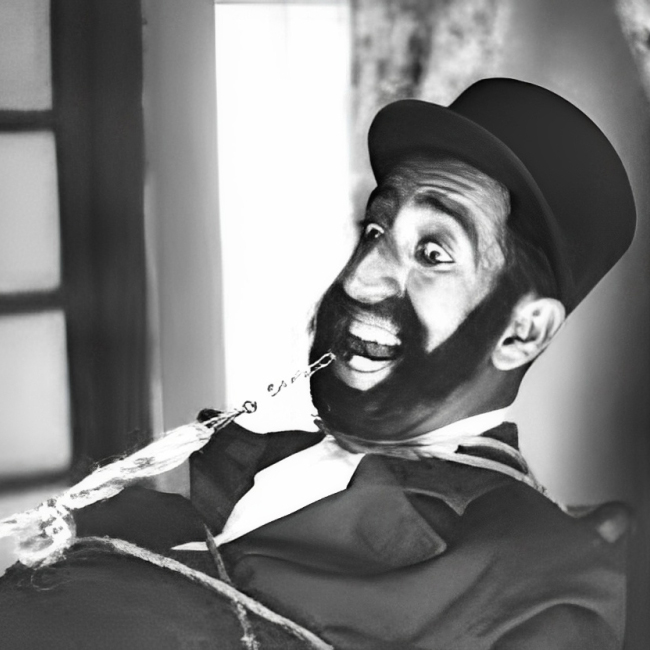

Released in 1933. Hājī Āghā Āktur-i Sīnamā (Haji Agha, the Cinema Actor) was directed by the filmmaker Ovannes Ohanian, who was also the director of the first feature-length Iranian silent film, Ābī-o Rābī (Abi and Rabi; 1930). Hājī Āghā is of the comedy genre, highlighting the merits of modern technology in cinema for a traditional audience through the representation of an interaction between a film director and a character named Hājī Āghā. With the beginning of Reza Shah’s reign and his efforts to create economic and social changes in Iranian society, cinema, as one of the manifestations of modernism, played a special role in creating a cultural background for the implementation of Reza Shah’s modernizing policies. The confrontation between traditional and modern views and attitudes and the final triumph of modernity in the film Hājī Āghā (in addition to the film Dukhtar-i Lur), can be considered as an example of cinema’s support for those policies. For this reason, the film is considered the first intellectual silent movie of Iranian cinema. In the film, the director, played by Ovannes Ohanian himself, is looking for a subject for his movie when he stumbles upon Hājī Āghā, who is vocal in his disapproval of the film. The director, with the help of Hājī Āghā’s daughter, son-in-law, and a servant, secretly shoots Hājī Āghā. When Hājī Āghā’s watch goes missing, he accuses his servant of stealing it, but the director is able to provide evidence to prove the servant’s innocence, which is the lesson of the film.
